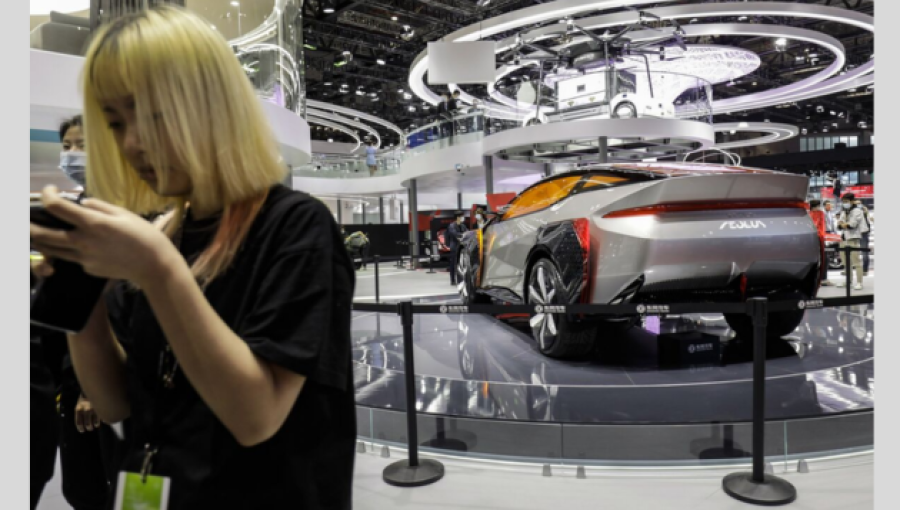The Auto China show in Beijing has kicked off with Chinese car giants engaging in a fierce price war to capture attention in the world's largest electric vehicle (EV) market and beyond. This battle for consumer attention and market share underscores the explosive growth of China's EV sector and the intense competition within it.
At the forefront of this showdown are 129 EV brands in China, though only 20 have managed to secure a domestic market share of at least one percent. Among these contenders, BYD stands out as a major player, having surpassed Tesla to become the world's top EV seller in the fourth quarter of last year. BYD is set to unveil its first electric pickup, the BYD Shark, equipped with dedicated off-road technology at the Auto China show.
Traditional automotive giants like Volkswagen are also present, aiming to regain ground lost to domestic challengers. Volkswagen has announced significant investments to bolster production and innovation in China, its most crucial market.
Meanwhile, Shanghai-based Nio is looking to revitalize its business with the launch of eight new EV models for 2024. Notably, Xiaomi, a tech giant, has entered the EV market with promising initial sales of its SU7 model.
The show unfolds amidst an intensifying price war among EV companies in response to a slowdown in consumer spending in China. Li Auto and Tesla have recently slashed prices, reflecting the cut-throat nature of the market.
Despite concerns about oversupply and foreign competition, Chinese EV manufacturers are expanding aggressively into global markets, with BYD establishing a factory in Hungary and Chery securing a deal to produce electric vehicles in Spain. These moves signal China's ambition to assert dominance in the global EV landscape while navigating challenges and regulatory scrutiny abroad.
As the Auto China show continues, all eyes are on the developments shaping the future of electric mobility, underscoring China's pivotal role in driving innovation and disruption in the automotive industry.































Comment: